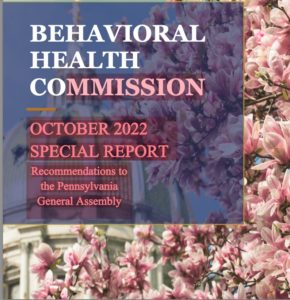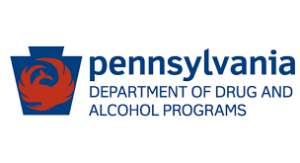PA Health Policy Update for Friday, December 2
The following is an update of selected state health policy developments in Pennsylvania for the week of November 28 to December 2, 2022. (Some of the language used below is taken directly from state documents.)
Governor Wolf
Governor Wolf has announced the availability of more than $9 million in state grant funding for Single County Authorities to establish or expand crisis stabilization services for individuals with co-occurring mental health and substance use disorders. Grants of up to $3 million will be awarded to eligible Single County Authorities and can be applied toward a range of activities, including construction and building infrastructure, staffing, and programming. Learn more about how the state envisions counties using this money from this announcement from the governor’s office.
Governor-Elect Shapiro
The Shapiro-Davis transition team announced that Dana Fritz will serve as chief of staff in a new Shapiro administration. Immediately prior to joining the incoming administration, Ms. Fritz, a long-time aide to Shapiro, served as his campaign manager. Find additional information about the transition here.
Revenue Collection Update
The Department of Revenue has released its monthly revenue update for November. General Fund revenue collections were $201.9 million, or 6.8 percent, below estimate for the month. The shortfall is due, in part, to personal income tax revenue being deposited in December rather than November. Fiscal year-to-date General Fund collections total $15.7 billion, which is $183.2 million, or 1.2 percent, above estimate.
 Department of Human Services
Department of Human Services
- The Department of Human Services (DHS) has announced its intent to update the qualifying criteria and payment methodology for Medicaid disproportionate share hospital (Medicaid DSH) and supplemental payments to Medical Assistance-enrolled and qualifying emergency departments in acute-care general hospitals by adding references to the report used in determining the eligibility for and the payment amounts beginning FY 2022-2023. This announcement appears to be a codification of current state policy. Learn more from this Pennsylvania Bulletin notice.
- DHS has announced that it plans to expand the Living Independence for the Elderly (LIFE) Program to serve Carbon County and Monroe County as one area and is soliciting expressions of interest in serving this area. Learn more about the LIFE program, DHS’s intentions for Carbon and Monroe counties, and the process for pursuing an opportunity to establish a LIFE program in those counties from this Pennsylvania Bulletin notice.
- CMS has written to states to remind them that with the passage of the Inflation Reduction Act, Medicaid and Children’s Health Insurance Program (CHIP) programs will be required to provide coverage for approved adult vaccines recommended by the CDC’s Advisory Committee on Immunization Practices (ACIP) without cost-sharing for certain enrollees beginning October 1, 2023. Learn more from this CMS notice.
- DHS has circulated the minutes of the October 26 meeting of the Medical Assistance Advisory Committee’s consumer subcommittee. Find those minutes here.
Department of Health
- The Department of Health (DOH) issued a press release announcing its plans to distribute approximately $11.7 million in federal CDC funding to help long-term-care facilities build resilience to sustain quality care. The money will be invested for purposes such as workforce development, staff retention, and infrastructure developments that support infection prevention control and emergency preparedness. Eligible applicants include skilled nursing facilities, personal care homes, assisted living facilities, and intermediate care facilities. Learn more about the program and find links to additional information about it here. The deadline for applying for funding is December 31.
- DOH has issued a health alert informing health care providers of a recent increase in reports of mushroom poisoning received by poison control centers in the state. The majority of these cases have involved individuals consuming wild mushrooms foraged from backyards, public parks, wooded areas, and other locations in the southeastern part of the state. Learn more from this department health alert.
- DOH has updated the guidelines and fees that health care providers and facilities may charge in response to requests for production of medical charts or records. Learn more, including the new fees, from this Pennsylvania Bulletin notice.
- In preparation for the holiday season, DOH has established ten temporary COVID-19 testing and home test distribution sites across the state. Go here for information about the location and hours for these sites.
COVID-19: By the Numbers
- According to the CDC, the number of new COVID-19 cases reported daily in Pennsylvania and the number of new deaths has remained steady in recent weeks, with the state averaging about 1400 new daily cases and 16-20 new daily deaths.
- According to the Department of Health, the number of Pennsylvanians hospitalized with COVID-19, on ventilators because of the virus, and in hospital ICUs remains relatively steady as well.
- The CDC reports a modest decrease in the seven-day rolling average of new daily COVID-19 hospital admissions.
- As of November 30, 38 Pennsylvania counties are experiencing high rates of community transmission of COVID-19; 26 are experiencing substantial rates of community transmission; and three counties are experiencing moderate rates of community transmission.
 Pennsylvania Health Care Cost Containment Council
Pennsylvania Health Care Cost Containment Council
PHC4 has issued “COVID-19 Disaster Emergency Report,” to provide data on the effect of the COVID-19 emergency on the financial performance of Pennsylvania hospitals and health care facilities. According to the report, Pennsylvania hospitals and health systems reported $206 million in COVID-19 costs, between related expenses and revenue losses, for the period April-June of 2022. Total COVID-19-related expenses and lost revenue reported by Pennsylvania hospitals and health systems through December 2021 are $7.8 billion but these figures do not reflect emergency funding provided under federal or state laws. Learn more from this PHC4 news release and the report itself.
Stakeholder Events
DHS – Medical Assistance Advisory Committee – Managed Long-Term Services and Supports Subcommittee – December 7
The managed long-term services and supports subcommittee of DHS’s Medical Assistance Advisory Committee will meet in Harrisburg on Wednesday, December 7 at 10:00. Interested parties can join the meeting in person or via webinar. For information about the location of the meeting and how to join virtually, see this DHS notice.
DHS – Medical Assistance Advisory Committee – Consumer Subcommittee – December 7
The consumer subcommittee of DHS’s Medical Assistance Advisory Committee will meet virtually on Wednesday, December 7 at 1:00. Go here to register to participate.
Department of Health – Infant Hearing Screening Advisory Committee – December 8
The Infant Hearing Screening Advisory Committee will hold a public meeting in Harrisburg on Thursday, December 8 at 1:00; individuals also may participate virtually. For more information about the meeting, including its location and how to join virtually, see this Pennsylvania Bulletin notice.
Department of Aging – Pennsylvania Long-Term Care Council – December 8
The Department of Aging’s Pennsylvania Long-Term Care Council will meet publicly on Thursday, December 8 at 10:00. For information about how to attend in person or virtually, see this Pennsylvania Bulletin notice.
Patient Safety Authority – December 8
The board of directors of the state’s Patient Safety Authority will meet virtually on Thursday, December 8 at 1:00. Learn about how to register for and participate in this meeting from this Pennsylvania Bulletin notice.
DHS – Medical Assistance Advisory Committee – December 8
DHS’s Medical Assistance Advisory Committee will meet virtually on Thursday, December 8 at 10:00. Go here to register to participate.


 Behavioral Health Commission for Adult Behavioral Health
Behavioral Health Commission for Adult Behavioral Health Department of Health
Department of Health General Assembly
General Assembly Governor Wolf
Governor Wolf Department of Drug and Alcohol Programs
Department of Drug and Alcohol Programs Stakeholder Events
Stakeholder Events

 Department of Drug and Alcohol Programs
Department of Drug and Alcohol Programs General Assembly
General Assembly Department of Health
Department of Health Department of Drug and Alcohol Programs
Department of Drug and Alcohol Programs Primary Election
Primary Election SNAP’s response focuses on three areas:
SNAP’s response focuses on three areas: Included in this month’s issue are articles about:
Included in this month’s issue are articles about: Governor Wolf
Governor Wolf